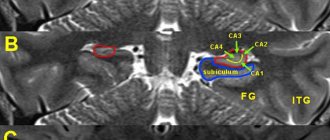Severe depression causes
Severe depression usually occurs for two reasons: psychological and physiological.
For psychological reasons, depression can develop as a result of stress or any traumatic situation. This could be the death of a loved one or relative, physical or moral violence, a terrible disaster in which a person became a participant, and many others. Usually, after two months, the depressive state can go away, but without proper help it drags on and severe depression can develop.
A number of seemingly insignificant unpleasant life situations present in a person’s life for quite a long time can become a source of constant stress. Lack of material resources; work that doesn't bring you joy; forced living with unpleasant people; deterioration in the quality of life due to any chronic disease - all this can be attributed to a constant stressful situation.
Severe depression can develop due to frustration - a condition in which a person constantly feels that his desires are impossible to fulfill.
An existential crisis can simultaneously act as both a cause and a manifestation of depression. It is expressed in the loss of life goals, a feeling of the meaninglessness of existence, and an imbalance of harmony.
The physiological causes of depression have completely different roots. Alcohol and drug use, menopause, cerebrovascular accidents, severe fatigue, chronic diseases, lack of proper nutrition - this is just a small list of physiological disorders that can lead to severe depression. An important fact is that depression rarely develops for any one reason; often several factors lead to it. And successful treatment is only possible if all the causes of this mental disorder are taken into account.
Why is clinical depression dangerous?
Loss of interest in receiving all forms of pleasure greatly devalues the life of a patient with severe CD. The ensuing emotional “sterility”, in which there are no not only positive but also negative experiences, steadily leads a person to painful and painful reflections about the meaning of further existence. Without providing such a patient with qualified assistance, the development of CD leads to the following consequences:
- using alcohol or drugs as a means of escapism;
- the desire for loneliness and desocialization even at the cost of losing friends, leaving work, family breakdown, impoverishment, and other things;
- psychosomatic exacerbation of existing chronic diseases or the appearance of primary disorders, especially cardiovascular ones;
- attempts to commit suicide, often unsuccessful (as an unconscious signal to others asking for help).
In the presence of some external restraining factors (for example, responsibility to the family), patients can hide the presence of a depressive state for months, trying to live as before, but such an “automatic” existence only aggravates the situation, which ultimately leads to a successfully completed suicide.
Severe depression symptoms
The fact that a person is severely depressed is determined by the following symptoms: depressed mood, decreased performance and activity, constant feeling of fatigue, inability to concentrate on anything, constant self-flagellation and guilt, low self-esteem, thoughts of suicide, a gloomy and hopeless look for your future, insomnia or, conversely, severe drowsiness, loss of appetite.
The clinical picture of severe depression is as follows: a person experiences a persistent feeling of melancholy every day; his mood is depressive; signs of psychomotor retardation are observed; he cannot concentrate his attention on anything; sexual desire decreases; in the morning the patient feels tired and exhausted due to the fact that he cannot sleep normally at night. Manifestations of severe depression also include a feeling of suffocation and discomfort in the chest, complete apathy, pessimistic views of one’s future (a person always expects an accident to happen), lack of will, inability to make any decisions, constant drowsiness and a feeling of laziness.
How to identify depression
If a person close to you is constantly gloomy and sheds tears for any reason or without it, he is overcome by thoughts about the imminent end of his life, he constantly looks at everyone as enemies, take him to the doctor or invite a specialist to your home. Treatment will be more effective if you start fighting the disease in a timely manner. This is the case when it is impossible to play it safe. It is easier to fight the disease if a person is aware of the danger and is ready to listen to the doctor’s recommendations. A severe form of the disease requires hospital treatment. If you notice frequent mood swings, lethargy, lack of appetite, or the appearance of unexplained pain in different parts of the body, do not delay, visit a doctor as soon as possible.
Severe depression signs
If a person does not have the strength and desire to do anything, if he cannot force himself to do anything, and at the same time is constantly in a bad, depressed mood, then this indicates signs of a depressive state. Manifestations of depression also include constant laziness, which disguises apathy. The fact is that during severe depression, a person’s brain begins to work differently - its biochemical processes change, which leads to laziness. There are three main brain transmitters that are responsible for a person’s mood, energy and performance - dopamine, norepinephrine and serotonin. And when their work is disrupted, complete apathy sets in and there is a lack of energy to engage in any activity. In such cases, it is necessary to start treatment with special drugs on time, otherwise the person simply will not want to get out of bed in the morning and will completely lose interest in life. The consequences of severe depression can be very serious and negative for the patient - a constant feeling of fear and anxiety develops, eventually acquiring manic forms.
The course of severe depression in pregnant women deserves special attention. Since it often causes miscarriage. Therefore, at the slightest sign of depression, a woman needs to seek help from a specialist.
Myth #7: “Are you depressed? Go work!”
With exactly the same success, one can advise a person with diabetes to go unload a wagon of bricks.
Is so-called “occupational therapy” necessary at all? Yes, it is needed by workers in hospitals, boarding schools and rehabilitation centers who force people with depression or alcoholism to dig up beds, clean wards or help prepare food.
At the same time, patients often also pay money for this, and considerable money at that. This takes the workload off the staff, which I think is well settled.
In my opinion, occupational therapy cannot help people suffering from depression or alcoholism. Among my patients with depression or alcohol addiction, many are real workaholics.
There is also such a problem as doctors being predisposed to depression. It is explained by the fact that people in this profession work a lot and hard, they have a high level of responsibility and stress, and they experience a lack of approval from others. Any mistake will result in a scolding from the chief physician, and in a difficult situation he may not support his subordinate. And if a doctor works at one and a half or two rates, which often happens, he cannot be called a slacker. He doesn't need occupational therapy; he works too much without it. One of the recent American scientific papers reports the results of a survey of young medical trainees for the period from 1963 to 2015. And every third young doctor who is still learning his profession shows signs of depression.
Severe depression and suicide
Severe depression is dangerous because the patient completely loses the instinct of self-preservation. A persistent feeling of melancholy, as well as constant pain tormenting his soul, makes him think about suicide. An overwhelming feeling of guilt, a feeling that he deserves punishment, a desire to free his loved ones, often push a person to commit suicide. According to statistics, 15% of people with mental disorders of unknown etymology become victims of suicide.
At the onset of the disease, the person is so weak, exhausted by severe depression, that he is unable to take any steps to take his own life. But as soon as this condition goes away, the patient may attempt to commit suicide. He will think through the suicide plan in detail, develop it, and try to create a deceptive impression that he has gotten better, without leaving the thought of committing suicide.
The most common cases of suicide are among lonely people with a history of somatic illnesses and people with a history of suicide in their family.
What should a person do if he has all the signs of severe depression? There is only one answer to this question: seek help immediately. If depression is not treated, it will become chronic, and this is fraught with very dangerous consequences.
Myth No. 5: “People shouldn’t be put on antidepressants, it’s dangerous”
This phrase can often be heard from doctors of other specialties. Not psychiatrists, but, for example, therapists. So, in case of serious depression, the patient must be prescribed antidepressants, otherwise his condition may worsen greatly. Moreover, the course of treatment will take at least six months for the disease to go away. Modern antidepressants, no matter how many people, even doctors, fear and demonize them, are no more dangerous than the medications that therapists use in their practice.
What features can be identified?
People accept the blows of fate in different ways. Teenagers and young people suffer especially hard from loneliness, unrequited love, and low self-esteem. Hopeless conditions lead many to suicide. It is necessary to emphasize the characteristics of female depression. Due to the sensitivity and lability of the nervous system, they are 5 times more likely to experience depression. The postpartum period is very dangerous, when the body and nervous system are weakened by prolonged childbearing. In men, the disease is stronger and deeper. They cannot or do not want to openly admit their depressed mood. Most of them are prone to alcoholism and drug addiction.
We recommend reading: Pre-wedding depression in the bride: reasons for its occurrence, how to cope
Why is conditioned depression dangerous?
The real danger is posed only by the first few days of UD, when emotional devastation is experienced especially acutely, which can push a person to such wrong decisions as suicide and drugs, or provoke an exacerbation of cardiovascular diseases. Otherwise, the state of UD can only cause consequences of a social nature - conflicts in the family, problems at work, deterioration of relationships with friends.
In some cases, due to an unfavorable combination of circumstances or certain characteristics of a person’s character, the state of conditional depression can transform into full-fledged clinical depression with all the corresponding consequences.
Treatment options
UD does not require special treatment. Taking sedatives or antidepressants, supplemented by a frank conversation with loved ones or a psychologist, helps speed up the normalization of the patient’s emotional state, but even without this, the severity of negative experiences usually passes within a few weeks.
The situation with CD is completely different. The isolation of the patient and the addition of somatic pathologies does not allow treating this condition only with medication or only with psychotherapeutic methods, and therefore a set of therapeutic measures is always applied to patients with CD:
- taking antidepressants with stimulating or sedative action, depending on the form of depression;
- a course of therapy with a psychologist or psychotherapist - individually or as part of a group;
- carrying out special-purpose physiotherapeutic procedures: electroconvulsive therapy, transcranial magnetic stimulation, etc.
It is noteworthy that early detection of CD does not always improve clinical prognosis, since in this case the patient has not yet had time to “get tired of the meaninglessness of his own life.”
Prevention measures
Depression, like any other disease, is much easier to prevent than to then treat it itself and the somatic disorders caused by it. This can only be done in one way - by increasing your own stress resistance and developing the skills of rethinking (reevaluating) a negative situation. This does not provide 100% protection against depression, but it still reduces the likelihood of developing it.
All that remains is to figure out how to make yourself more resistant to everyday troubles and “blows of fate,” but this is a topic for a completely separate conversation.
Share this article









